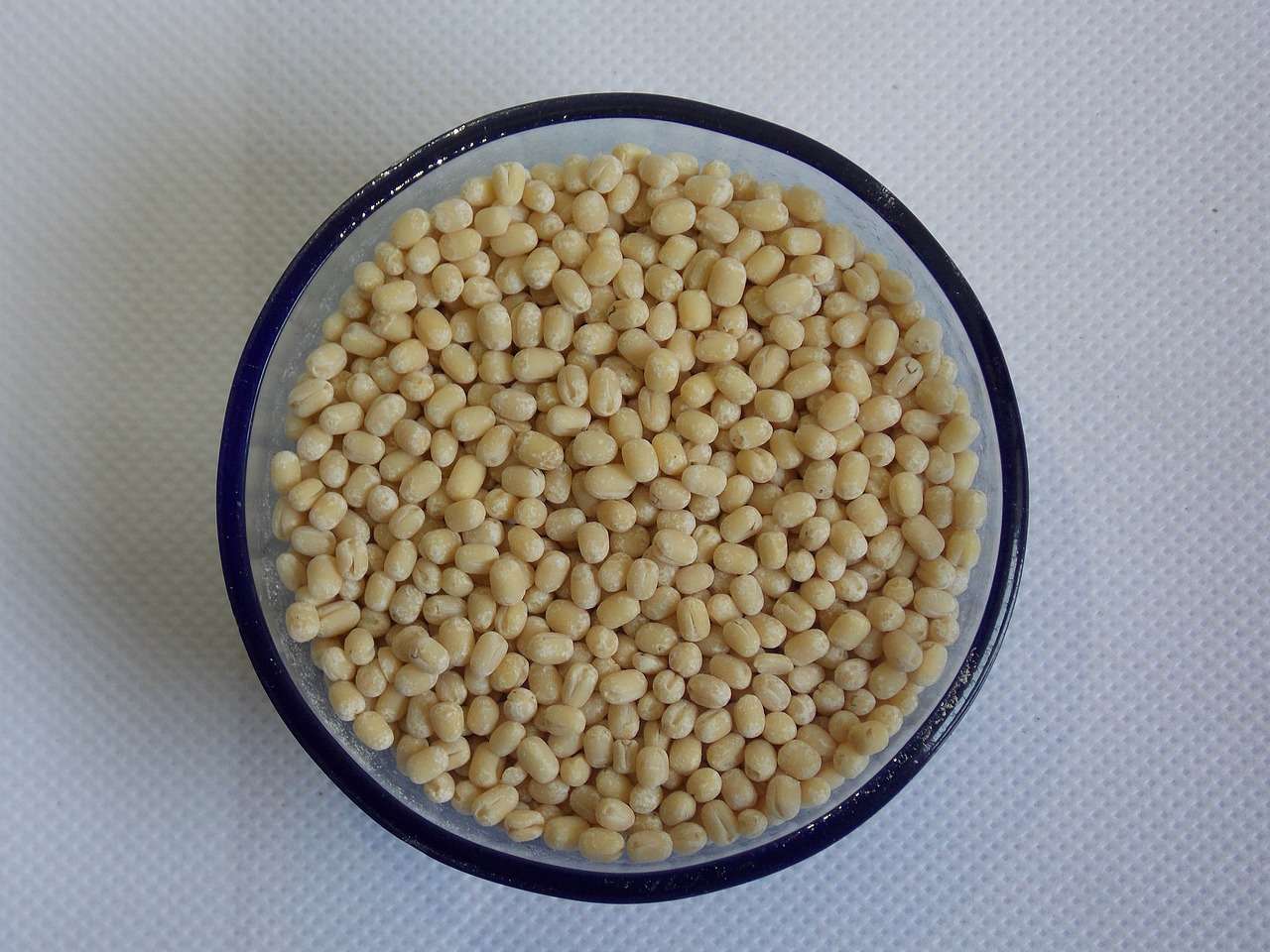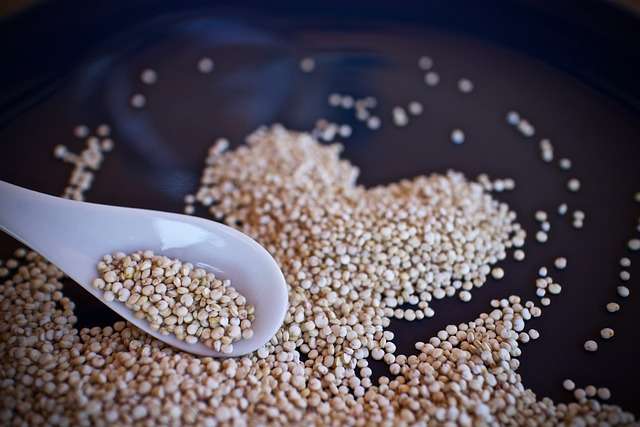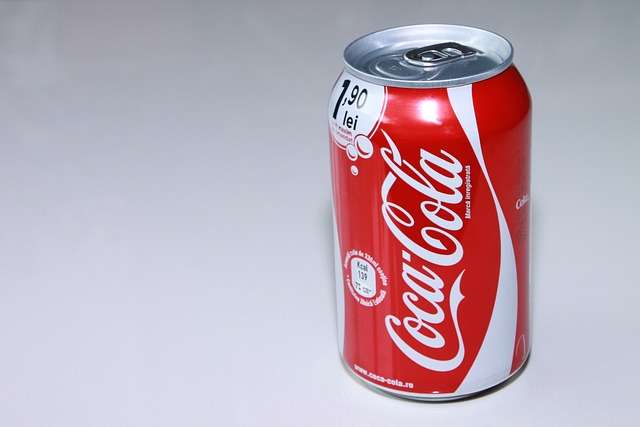Nutrition Facts of White Grams: A Guide to Health Benefits
Introduction: The Fabaceae family of legumes includes white chickpeas, sometimes referred to as Kabuli chickpeas or white chickpeas. Nutrition Facts of White Grams have an earthy, mildly nutty flavor and are round, beige, or creamy in appearance. White chickpeas are larger, smoother, and softer than their brown or native cousins, which are smaller and darker. Given their high nutrition facts of White Grams and reputation for having a lot of protein, these beans are an excellent source of plant-based protein, particularly for vegetarians and vegans. A balanced diet should include white chickpeas because they are a good source of dietary fiber, important vitamins, and minerals. Nutrition Facts of White Grams: White gram, sometimes referred to as white gram or kabli gram, is a helpful supplement to a balanced diet because it is loaded with nutrition facts of White Grams. Here is a list of the vital vitamins and minerals in white gram. Calories & Serving Size Serving Size: A typical benchmark is one cup (or 164 grams) of cooked white chickpeas. Calories: When cooked simply without any additional ingredients or flavors, 1 cup contains about 210–220 calories. Protein White chickpeas are a superior plant-based source of protein. Per cooked serving of 1 cup (164 grams), they have roughly 15 grams of protein. Protein is essential for bodily processes including muscular growth and repair. Dietary fiber Each cooked cup of these beans has roughly 12 grams of dietary fiber. Fiber supports satiety, improves digestion, and helps control blood sugar levels. By bringing down cholesterol levels, it also promotes cardiovascular health. Complex Carbohydrates One cup of cooked white gram has roughly 45 grams of complex carbohydrates. Complex carbohydrates are a crucial component of a balanced diet because they offer a steady source of energy. B vitamins White chickpeas are especially rich in B vitamins, such as riboflavin (necessary for generating energy), folate (vital for DNA synthesis), and vitamin B6 (engaged in metabolism). They also include vitamin K, which is important for healthy blood coagulation and bones. Minerals • Iron: White chickpeas are an excellent source of iron, which is needed to oxygenate the blood and stave off anemia. • Magnesium: These supply magnesium, which is necessary for bone health, blood sugar regulation, and muscle and neuron function. • Potassium: White gram’s potassium content promotes heart health and aids in blood pressure regulation. • Phosphorus: White chickpeas are a good source of this mineral, which is necessary for strong bones and teeth. Antioxidants These fruits contain anti-inflammatory antioxidants, such as selenium, that help shield cells from oxidative stress and inflammation. Phytonutrients White chickpeas also include many phytonutrients, including as saponins and flavonoids, which have several health advantages, including the ability to lower inflammation and defend against chronic diseases. Low in fat White chickpeas are a healthy option for anyone trying to maintain or lose weight because they are comparatively low in fat. Low glycemic index Because of their low glycemic index and nutrition facts of White Grams’s minimal effect on blood sugar levels, they are excellent for diabetics. Health Benefits of White Grams: Due to the nutrition facts of White Grams’s high nutritional value, white gram (also known as Kabbli Chana) has several health advantages. Here are five advantages to your health of including white gram in your diet High protein content As a great plant-based source of protein, white chickpeas are a welcome addition to vegetarian and vegan diets. Protein is crucial for maintaining bodily function, supporting muscle growth, and constructing and mending tissues. Dietary fiber for good digestion These beans are full of dietary fiber, which improves digestion by encouraging regular bowel movements and reducing constipation. Fiber also contributes to weight management by maintaining a sensation of fullness. Blood sugar regulation White gram’s protein and dietary fiber content work together to lower blood sugar levels. They are appropriate for diabetics since they have a low glycemic index, which means they raise blood sugar gradually. Heart Health The low fat content, and abundance of potassium, magnesium, and dietary fiber in white gram make it good for heart health. Magnesium promotes good cardiac function, whereas potassium helps control blood pressure. White grams of dietary fiber can aid in reducing LDL (bad) cholesterol levels. Healthy White gram is a great source of nutrients like iron, magnesium, potassium, and B vitamins (folate, B6, and riboflavin). These nutrition facts of White Grams are crucial for many biological processes, including the generation of energy, the synthesis of red blood cells, and neuron function. How to incorporate White Grams into Diet: Including white chickpeas, also known as “Kabli Chana,” in your diet is a fantastic way to reap the nutrition facts of White Grams. Several ways to incorporate white gram into your diet are listed below: Hummus To prepare a creamy and wholesome hummus dip, combine cooked white chickpeas with tahini, garlic, lemon juice, and olive oil. Serve it as a vegetable dip, with pita bread or whole-grain crackers. Chana Masala To make this traditional Indian meal, boil white gram in a tasty tomato-based sauce with cumin, coriander, and garam masala. Serve it with rice or whole-grain toast. Salads To add extra protein and fiber to salads, add cooked white chickpeas. In addition to mixed greens, cucumbers, tomatoes, and a lemon vinaigrette dressing, they go nicely together. Vegetable stews & soups Vegetable stews, soups, and chili can all benefit from the substantial inclusion of white chickpeas. They provide these dishes with both protein and substance. Curries White gram can be used in vegetarian or non-vegetarian curries. For a tasty and substantial supper, combine them with a variety of veggies and your preferred spices. FAQs: 1. Do white grams and chickpeas look alike? White grams are a type of chickpea distinguished by its bigger size and appearance of cream hue. 2. Is it necessary to soak white gram before cooking? Soaking dried white gram in water for around 8 to 12 hours or overnight before cooking is advised to cut down on cooking time and improve digestion. 3. … Read more









